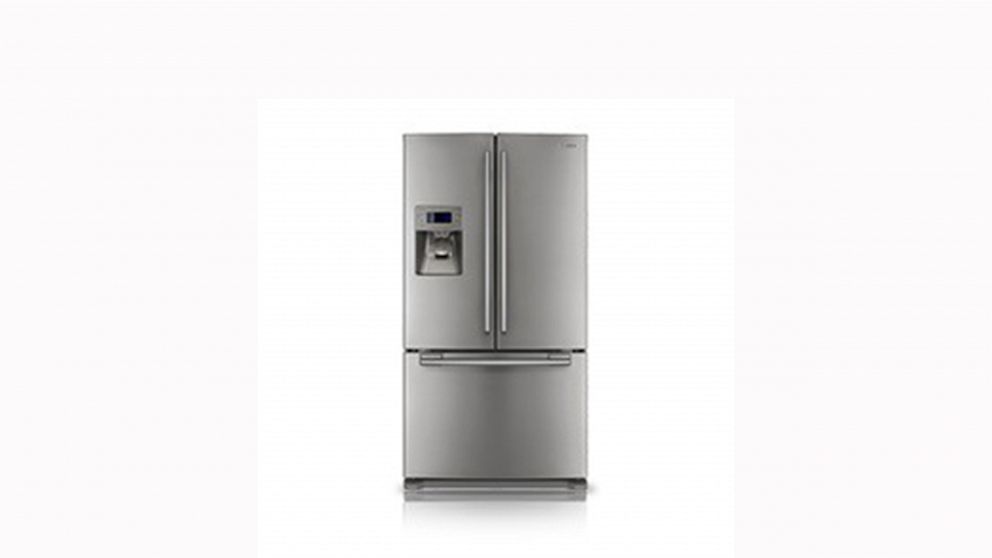Samsung Refrigerator Energy Star Class Action Lawsuit Advances
Two women are suing Samsung and Lowe's over a mislabeled Energy Star fridge.

July 18, 2013— -- A lawsuit against Samsung and Lowe's is moving forward after a judge ruled the companies can't dismiss allegations they used Energy Star logos on refrigerators that didn't meet federal energy-efficiency standards though selling them at higher prices.
"Overall, we're pleased with the judge's decision," said Anthony Vozzolo, an attorney for the two plaintiffs who will ask a judge to certify their case as a class action suit. "Qualification under the Energy Star program is a significant marketing tool for companies and one of the most highly recognized symbols for marketing purposes. Companies need to know they will be held accountable if they fail to live up to their promise to consumers."
The complaint alleges that damages are in excess of $5 million.
A statement from Samsung stated, "It is Samsung's policy to not comment on pending litigation."
A spokeswoman for Lowe's said the company is unable to comment on pending litigation.
Read More About Consumer Reports' Best, Worst Blenders
Last week, U.S. District Judge Kevin McNulty in New Jersey sustained a number of complaints from the plaintiffs' original claims, originally filed in Nov. 2011.
Plaintiffs Lynne Avram and Margaret Lark each bought Samsung RF26VAB model refrigerators with the U.S. Department of Energy's Energy Star label from Lowe's Home Centers in Scottsdale, Ariz., and Maryland in 2009.
The suit explains that they paid a premium for what they believed were energy-efficient fridges. On Feb. 18, 2010, the Energy Department alerted Samsung that the refrigerators did not meet the Energy Star efficiency requirements under the Energy Policy Act of 2005.
Avram looked only at Energy Star models when she purchased her refrigerator at a Lowe's store in Scottsdale, Ariz. for $1,213.20 plus tax on June 26, 2009. As part of the voluntary Energy Star program, to earn the Energy Star label, refrigerators and freezers must be at least 20 percent more energy efficient than the minimum mandated by federal law.
That purchase price included a "substantial premium" based on claims that the refrigerator was energy efficient and met the qualifications of Energy Star program, the suit states, adding that Avram would not have purchased the refrigerator had she known it was not Energy Star-compliant.
"When you sell an Energy Star appliiance, you command a premium in the marketplace," Vozzolo said, adding that people often look for the Energy Star logo when they purchase appliances.
Lark bought a refrigerator on Nov. 1, 2009 in Maryland for $2,100.
"As a result, Avram and Lark did not receive the benefit of the Energy Star bargain. They paid a price premium for what purported to be an Energy Star product but did not receive the energy savings they had paid for," the plaintiffs claim in their lawsuit.
Now that the judge has dismissed many of the defendants' motion to dismiss, Vozzolo said he will engage in discovery along with Lowe's and Samsung to ascertain additional facts, including how many of those refrigerator models were sold, thereby expanding the class. Vozzolo and his clients will later move to certify the class.
The plaintiffs allege breach of express warranty and implied warranty of merchantability, violations of the Magnuson-Moss Warranty Act, unjust enrichment, and consumer fraud under New Jersey and Maryland law.
Similar lawsuits related to Energy Star status for appliances have been dismissed, including a case involving a Maytag Centennial MVWC6ESWW1 washing machine whose energy-efficiency status was later revoked. The defendants were Home Depot U.S.A. and Whirlpool Corporation, both of which had moved to dismiss the lawsuit.
A judge in Ohio dismissed that case last August, ruling, in part, that the plaintiff's claim for damages was barred by the statute of limitations of the Ohio Consumer Sales Practices Act.
In addition, the judge for the U.S. District Court in the Northern District of Ohio, Eastern Division, said "the plaintiff's failure to allege that any connection between his decision to purchase the washer and either the Energy Star logo or an advertisement is fatal to his claim."




